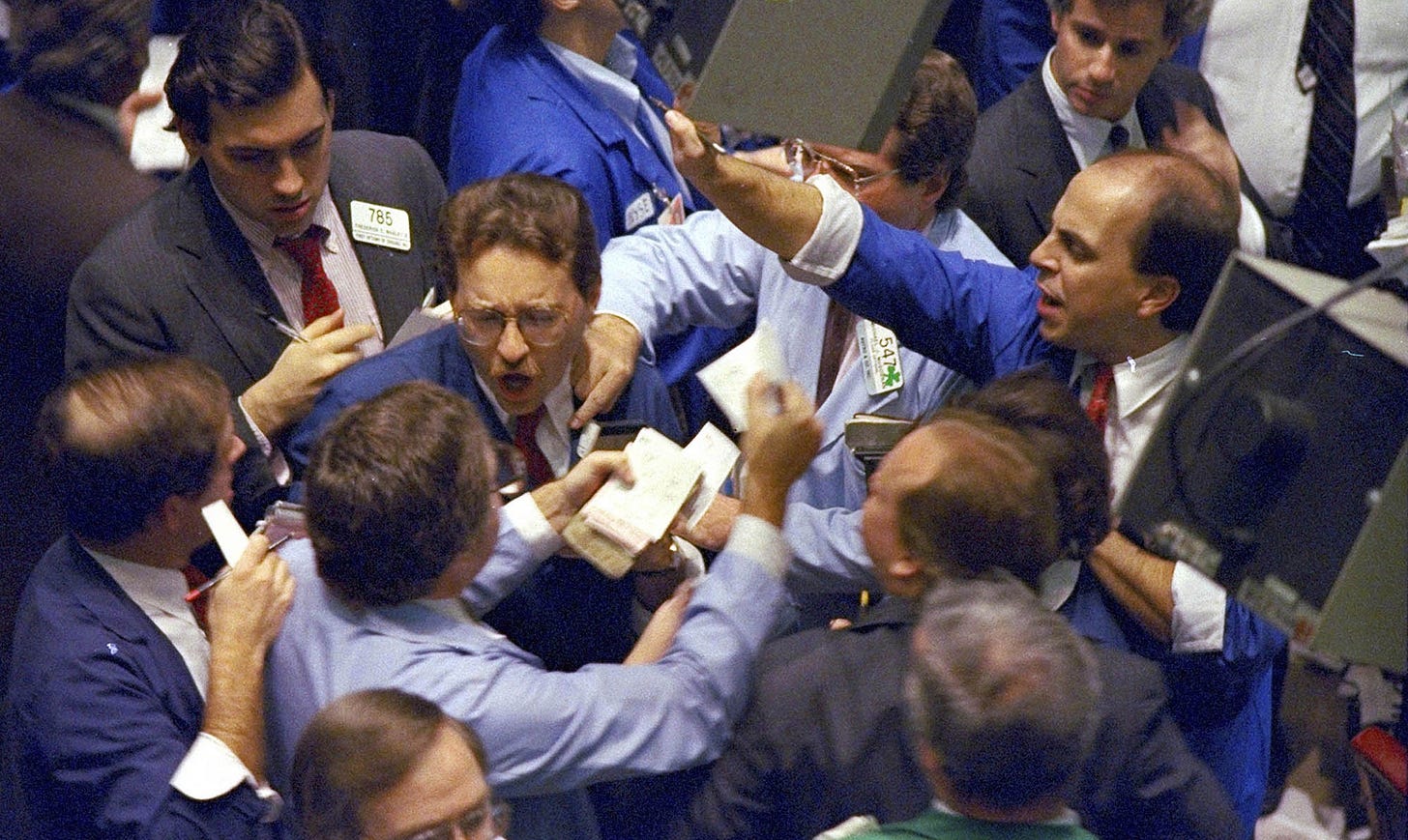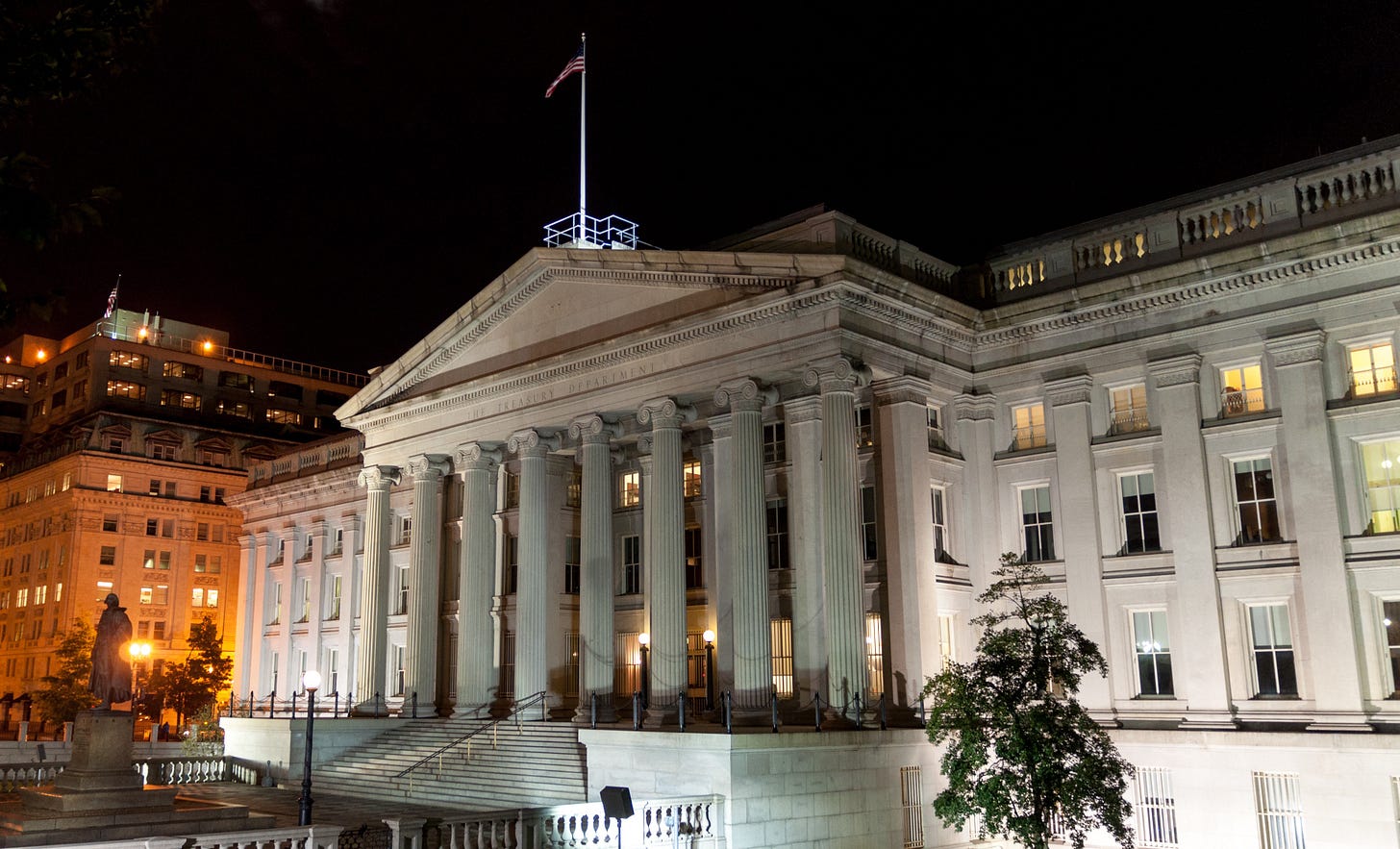Market Vigilantes Resurface
Successfully navigating uncertainty requires leaders to incorporate feedback loops
In the 1994 book “The Agenda”, Bob Woodward depicts a scene soon after the 1992 presidential election when then President-elect Bill Clinton was informed that his budget and economic plans had to take into account the reaction of the bond markets. In Woodward’s telling, red faced and angry, Clinton responded, “You mean to tell me that the success of the program and my re-election hinges on the Federal Reserve and a bunch of &*^#&$ bond traders?”
I was reminded of this anecdote as I watched U.S. markets gyrate in response to the initiatives and pivots of the Trump Administration, seemingly forcing the administration’s hand. The truth of the matter is that markets can and occasionally do force politicians and policymakers to change their actions, and in the 1980’s economist Ed Yardeni coined the term “bond vigilantes” to describe the market forces that attempt to control, constrain, or limit policy actions. If the market becomes concerned - about inflation, deficit spending, or government debt, for example – bond prices might drop, forcing yields to rise. This makes it more expensive for the government to borrow money, which can enforce fiscal sobriety on otherwise uncontrolled spending.
And it’s not just bond markets, of course. The same is true of wider markets as well; the Dow’s daily performance is part of almost every newscast and a precipitous drop can become the day’s lead story. The psychological impact of crashing stock prices – as well as the decimation of pension funds and retirement plans – can extract a political price from recalcitrant politicians. President Trump, in particular, seems to be hyper-aware of this dynamic and seems sensitive to the mood on Wall Street. To many, it appears some of his recent policy adjustments might have been made in reaction to market swings.
We saw the power of market feedback on policy actions play out during the on-again, off-again trade war. The general sense is the market’s negative response to “Liberation Day” led to Trump’s recent about-face. This month’s downgrade of U.S. government debt could force further policy changes.

Feedback loops, such as the market’s reaction to a proposed policy, are a natural focus for those who are systems thinkers. Linear thinkers may suggest a policy produces an impact, but systems thinkers will evaluate how the policy might impact markets and those markets then impact the policymakers. Considering feedback loops, it turns out, is critical to navigate uncertainty well.
So how might markets react to the recent downgrade of US debt? Linear thinkers would likely say “A downgrade is bad, so bond prices will fall and therefore rates will go up.” Logical enough and an apparently straightforward analysis that can be hard to debate. But a systems thinker will ask “What happens after a downgrade of US debt and who might act differently once that happens?”
Answering this question is no trivial task. A downgrade of the United States of course, given the weight of America’s economy on the global economy, would imply that the world economic situation is deteriorating rapidly…and that might lead investors to purchase the asset that is closest to “risk-free.” As luck would have it, the asset believed to be as close to “risk-free” as anything else is the US Treasury Bond, leading to a counterintuitive scenario. With this reasoning, a downgrade of the US would lead to more buying of US Treasuries and lower yields.

While it’s possible to debate these arguments ad nauseum, there’s another way to think about the situation. We can reverse the logic and instead of asking “What does the downgrade mean?” we can ask “What does the market reaction tell us?”
Thinking this way may be more constructive for long-term strategic thinkers. What happens in the bond market will tell us what investors are most concerned about: if prices go up, they are more concerned about the world and still consider the U.S. to be a safe(r) haven, if not outright safe haven. And if prices go down, it will likely signal that they are more concerned about the U.S., the crushing debt, and the lack of political will and unity to address it. Bonds rallying suggest a global view; bonds plunging suggest a local take. The market’s behavior in the weeks and months to come will reveal which perspective seems to be carrying more weight, telling us what the market vigilantes believe.
As a small business owner – I recently started a frozen pizza manufacturer – you can bet that I pay close attention to the economy and fluctuations in interest rates. Making sense of all of this can be challenging, and navigating uncertainty requires that we think in terms of scenarios and the repercussions of each. But let’s not forget to think holistically and consider the feedback loops of markets, for as Isaac Newton taught us long ago, every action produces a reaction.
VIKRAM MANSHARAMANI is an entrepreneur, consultant, scholar, neighbor, husband, father, volunteer, and professional generalist who thinks in multiple-dimensions and looks beyond the short-term. Self-taught to think around corners and connect original dots, he spends his time speaking with global leaders in business, government, academia, and journalism. He’s currently the Chairman and CEO of Goodwell Foods, a manufacturer of private label frozen pizza. LinkedIn has twice listed him as its #1 Top Voice in Money & Finance, and Worth profiled him as one of the 100 Most Powerful People in Global Finance. Vikram earned a PhD From MIT, has taught at Yale and Harvard, and is the author of three books, The Making of a Generalist: An Independent Thinker Finds Unconventional Success in an Uncertain World, Think for Yourself: Restoring Common Sense in an Age of Experts and Artificial Intelligence and Boombustology: Spotting Financial Bubbles Before They Burst. Vikram lives in Lincoln, New Hampshire with his wife and two children, where they can usually be found hiking or skiing.





